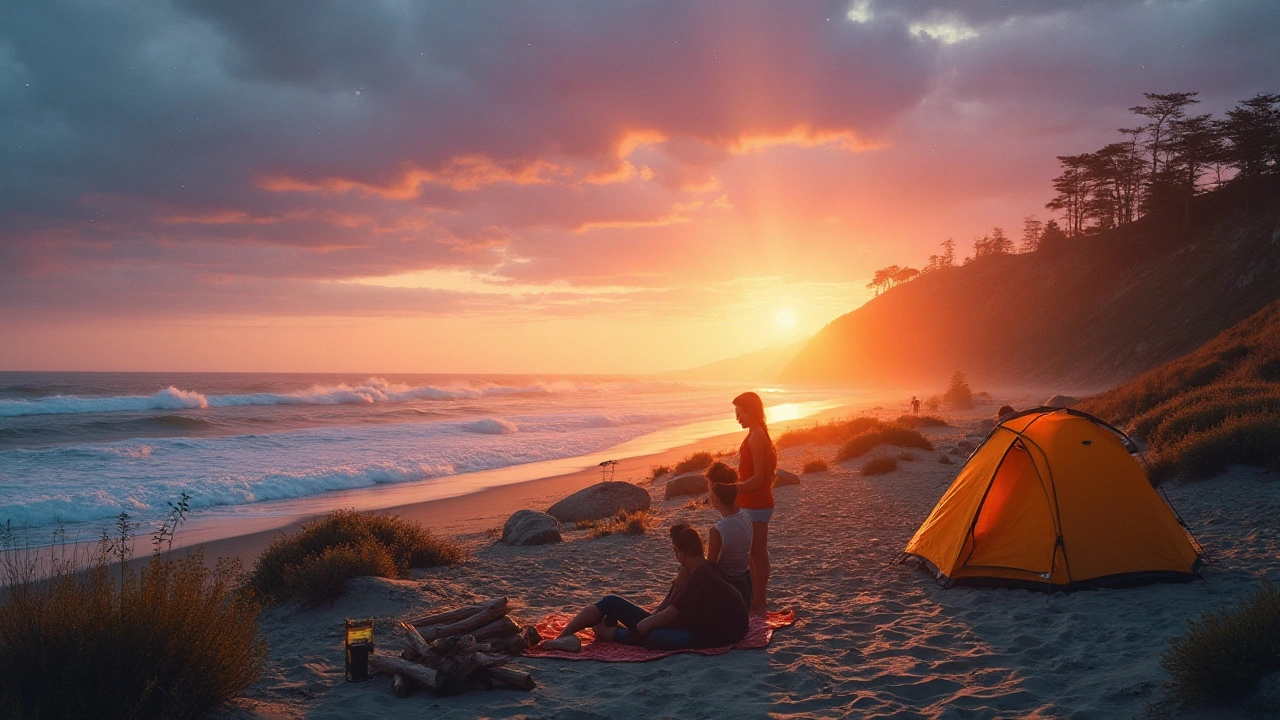Overnight Beach Camps: What You Need to Know Before You Pitch Your Tent
If you’re dreaming of falling asleep to waves crashing and gulls singing, you’re not alone. Beach camping feels like the ultimate freedom, but it can also land you a fine if you ignore the rules. Below we break down the legal must‑knows, the safest places to set up, and practical tips to make your overnight beach stay both legal and comfortable.
Legal basics: where can you actually camp on a UK beach?
In England, most beaches are managed by local councils or the National Trust, and wild camping is generally prohibited. The Scottish Outdoor Access Code is more permissive, allowing responsible beach camping if you follow the “leave no trace” guidelines. In Wales and Northern Ireland the rules sit somewhere in between – you’ll need to check the specific by‑law for each site.
Key points to remember:
- Look for signs that say “No camping” – they’re easy to miss at night but worth a second glance.
- Even when there’s no sign, many council‑run beaches treat overnight stays as illegal unless you have a permit.
- Fines can range from £60 to over £300, plus you might be asked to leave immediately.
If you’re unsure, call the local council or check the beach’s website before you arrive. A quick phone call can save you a night of packing up in the dark.
Smart alternatives and safety tips for a stress‑free night
When a beach is off‑limits, consider these work‑arounds that still give you that salty‑air experience:
- Motorhome or campervan: Parking just off the beach in a designated motorhome site lets you sleep under the stars without breaking any rules.
- Nearby campsite: Many coastal campsites sit a short walk from the sand. You get facilities like showers and you’re still close enough to hear the surf.
- Legal wild‑camp spots: In Scotland, beaches like Luskentyre on the Isle of Harris are famously permissive. Bring a sturdy tent, keep a low profile, and leave no trace.
Gear matters, too. A good quality, waterproof tent with a sturdy sea‑rated floor prevents sand and spray from getting inside. Use a sleeping pad that resists moisture – a foam pad works better than an inflatable one on damp ground. Bring a headlamp with a red mode so you don’t disturb wildlife or attract unwanted attention.
Don’t forget the practical side: tidal timing is crucial. Check tide tables the day before and set up at least 30 minutes above high‑water line. This avoids surprise flooding and protects your gear. And always pack a small trash bag – whatever you bring in, take out.
Finally, respect the locals. Keep noise low, avoid cooking strong‑smelling foods that could draw seagulls, and stay clear of protected nesting areas. A courteous approach makes it more likely that authorities will look the other way if you’re discreet.
Bottom line: overnight beach camps are possible, but they require a bit of homework. Check local rules, pick a legal spot or a nearby motorhome site, and come prepared with the right gear. Follow these tips and you’ll sleep under the stars with the ocean at your doorstep – no fines, no drama, just pure seaside freedom.
Unwind Under the Stars: Camping on California's Beaches
Immerse yourself in the experience of camping overnight on California's stunning beaches, where natural beauty and oceanic tranquility combine. From understanding regulations to finding the best campsites, this guide provides essential information for a memorable beach camping adventure. Whether you're a first-time camper or a seasoned outdoor enthusiast, you'll find tips, stories, and insights. Discover hidden beach campsites and learn how to prepare for an unforgettable night under the stars. Dive into these engaging details to plan your coastal getaway.
